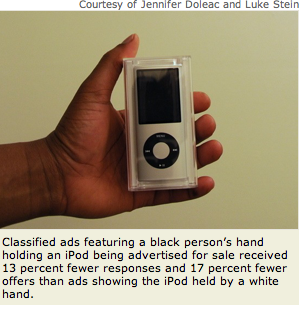8 Items that Will Win the Job Search for You!
This is one of the most important post I have ever put together regarding your job search effort! Print it out, and recognize that if you bring these items, you will be far and above the other candidates. Use your energy wisely, this is one place to expend it!
Many candidates do not have the inclination, n0r the energy to set themselves apart in the job search. You can win!
______________________
Factories are producing more, and buying more. Businesses are projecting optimism and the market is responding. I would not bet against a vibrant market for new sales professionals starting for the future. This post will help you get ready for the job hunting success that you are due. Don’t forget that in sales you need a method to your madness. This post will help.
Selling You! – Putting Your Best Foot Forward
I am going to give you some areas that you might want to focus on that could help you in this job search. Some of these you may have used already so this will take the form of a worthwhile reminder. Some of these may be somewhat new. From having hired sales professionals, I can tell you these items will enhance your chances!
I have broken this down to Stage 1 and Stage 2. Stage 3 is negotiations for a job, and will be covered in another post. There are items in Stage 1 which could be better relegated to Stage 2 so use your discretion:
Stage 1 of the job search effort (Discovery and Qualifcation):
- Your Accomplishments
- Your Sales Numbers/Statistics
- Customer Retentions Statistics
- Customer Testimonials
- Special Skills or Areas of Expertise
Stage 2 of the employment effort (Proving Effectiveness):
- Reviews/Appraisal ratings and documents
- Income and Commission/Bonus Verification
- Your sales agreement/contract
Be prepared! – Stage 1 Who are You?/Who are They?
Most of you have been through these stages before. Few of us have ever been ‘gifted’ a job, so you had to work to get it. You know they will ask for your resume and your sales numbers. My suggestion is that you go in with all of them, neatly recorded and bound. Remember, your competition is stiff and well prepared.
Your Accomplishments – A good resume featuring your accomplishments is the most solid method. Dave G. a friend of mine and outplacement professional advises that “… the resume as an indicator of experience is lacking substance if you miss the opportunity to list bullets defining your accomplishments.” An example – “Opened new territory in Kentucky in 2010 – Exceeded sales expectations by 36%”. If at all possible be prepared to back up your assertion.
Your Sales Numbers/Statistics - Gather your sales numbers and put them in their best light. Whether it is by quarter, by month, or by product. Know your numbers! Be an expert on yourself! The numbers do not lie but may tell a special story. I believe you should know this story well. Use numbers from the last two-three years, plus current, at least.
Customer Retention Statistics - In some types of sales these are important statistics. Your retention of customers as a percentage of total customers, or retention of business in total as a percentage of total business tells a story about your ability to service and gain loyalty.
Customer Testimonials - Customers who take the time to reduce to writing your value and service to them are invaluable to you. You should always maintain a file of these and use them appropriately. I would not solicit them, yet when offered I would gladly accept.
Areas of Specialties - Any evidence of specialities can be very important. Volunteer evidence of your specialties and be prepared to show how this will give you an edge, and how that translates to sales and dollars for your new employer.
Take the Offensive! – Stage 2 Proving Your Worth
Stage 2 is good ground. I mention in the listing of items in Stage 2 that could ultimately be integral in getting the job.
Reviews/Performance Appraisal ratings and documents - I would advise that these can get personal. It is a truly a personal opinion as to whether you want to use them, although face a basic fact that they give insight as to your standing with your employer. When you play this card, it is presumed that you have nothing to hide, and you are serious about a job. You would only want to use this if you felt comfortable that the information that was in your review is not proprietary regarding the activities of your employer. You may have an agreement or contract which outlines this, honor it.
Income Verification - In this noble profession, income verification is important. No one wants to pay you significantly without knowing that you deserve it, and can get it elsewhere. Be prepared to share an indication of salary and bonus/commission position. This can be done in a few different ways including W2s, wage stubs, and commission/bonus reports. Any combination of these items will probably suffice in showing income.
Sales Agreement/Contract – This document is fairly simple. It will give confidence to anyone that you can work for them and are not restricted. No new employer wants to be tied up in a legal swamp over the fact that you have agreed to protect materials, client lists, customers, and otherwise in an agreement you signed willingly, then violated. You may present this in Stage 1 if asked.
Obviously the provision of these items do not guarantee success, but they can increase the probability immensely.
One last important note:. I believe that you should protect your employer in terms of the sharing of proprietary information. Any activity that results in you sharing proprietary information will result in the new employer wondering if you would do the same to them. Plan to pass that test. Important Stuff!!!
Your comments are appreciated.
 October 17, 2013
|
Posted by Admin9!
October 17, 2013
|
Posted by Admin9!

 Categories:
Categories:  Tags:
Tags: 

Your Comments